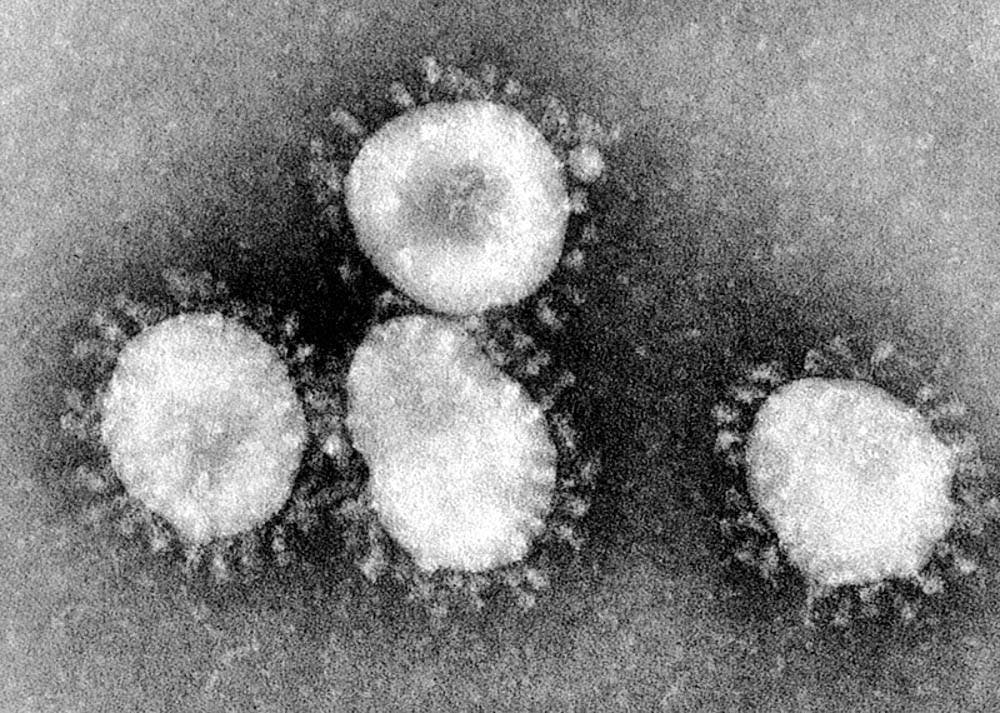In light of the 2019 Novel Coronavirus outbreak, the University responded by advising students and faculty on travel and health precautions, preparing University health care providers to address the virus and reassuring the community.
According to the Centers for Disease Control and Prevention, the 2019 Novel Coronavirus is a virus “identified as the cause of an outbreak of respiratory illness first detected in Wuhan, China.” The family of coronaviruses includes SARS, MERS and the common cold. The spherically shaped coronaviruses are so named for the “crown-like spikes on their surface.”
“For confirmed 2019-nCoV infections, reported illnesses have ranged from people with little to no symptoms to people being severely ill and dying. Symptoms can include: fever, cough (and) shortness of breath,” according to the CDC website. The CDC currently believes people may start to notice symptoms within two to 14 days following exposure.
“The immediate health risk from 2019-nCoV to individuals and communities in Rhode Island — including Brown University — remains low,” wrote Russell Carey, executive vice president of planning and policy and chair of the University’s Core Crisis Team, in an email sent to the University community Feb. 1.
University health providers prepare
Currently, according to the CDC website, criteria for undergoing medical evaluation has been updated. People with a fever who exhibit respiratory symptoms, like shortness of breath and coughs, within 14 days after having traveled to mainland China and sought hospitalization — or who traveled to the Hubei Province — should undergo a medical evaluation. The same standard applies to people who have been in contact with a person with the Coronavirus and who simultaneously have either a fever or aforementioned respiratory symptoms.
In a priority notice in Today@Brown from Health Services Jan. 24, students and faculty meeting these criteria were advised to “seek evaluation at Health Services” and “consult with their local primary care provider,” respectively. But as of Jan. 30, Health Services had not received instructions requiring them to clear students potentially returning from Wuhan for the spring semester.
“Students from all over have come in with the fear (that) they could have the Coronavirus,” said Clinical Director of Health Services Adam Pallant. Following winter break “is when we see an influx of respiratory illnesses. We don’t feel like there is much of a difference in the severity or acuity of what we are seeing.”
“There is nobody on campus that is either known to have the Coronavirus, nor do we suspect (it),” Pallant said.The flu is currently the strongest potential threat on campus.
Nevertheless, Health Services has been “walking through scenarios” to prepare Brown Emergency Medical Services to address cases in students if they were to exhibit symptoms after Health Services’ operative hours, said Assistant Clinical Director of Health Services Tanya Sullivan. EMS has also developed a Coronavirus checklist and is following CDC guidelines.
The Rhode Island Department of Health has been collaborating with Health Services as well, Sullivan added. “We have done a lot of theoretical planning.”
“We are paying close attention. Our protocol mirrors the CDC’s recommendations word for word,” Pallant said.
This is not the first time the University has had to prepare for a potential public health incidence. Within the past ten years, Health Services has developed responses for diseases like Ebola and SARS. “We are not reinventing the wheel from scratch,” Pallant said.
University professor elaborates on Coronavirus on an international scale
Looking beyond this campus, Coronavirus is having a global impact. Katherine Mason, assistant professor of anthropology, spent a year working with public health professionals in southeastern China. Mason was teaching in China in 2003 when the SARS virus broke out near her program site. She was quickly evacuated.
Mao Zedong, the communist leader of the People’s Republic of China for nearly 30 years, had placed a focus on vaccines, sanitation and public health. But SARS, which was eventually contained after several months, revealed weaknesses in China’s public health system, so there was a huge amount of pressure on China to invest in public health, Mason said.
Following the SARS outbreak, there was “globally a big movement … to work on pandemic preparedness,” Mason said. The World Health Organization developed a system that required reporting public health emergencies of international concern.
“Everyone is always worried about a 1918 flu repeat that killed tens of millions of people. That is always the worry with respiratory viruses,” Mason said.
With this new outbreak, the Chinese government is trying to show that they are doing everything they can. The government is putting a group of people about 15 percent the size of the U.S. population under quarantine, Mason said. “It is interesting because the measures being taken in China are very extreme but predictable because of all the pressure to make SARS not happen again.”
International travel guidelines implemented on campus
As a result of the outbreak in Wuhan, the University has taken additional steps in terms of international travel.
Director of International Travel Risk Management Christine Sprovieri oversees all of the University’s international travel for University sponsored for-credit and no-credit programs. As part of the team at the Office of Global Engagement, her tasks include coordinating predeparture preparations for University members traveling abroad.
The University classifies heightened risk travel into one of two categories — High-Risk and Restricted Risk travel — using input from “reputable oversight agencies,” including the U.S. Department of State and the CDC, according to the Office of International Programs’ website. In the case of the 2019 Novel Coronavirus, the CDC established an advisory Level 3 “Avoid Nonessential Travel” and the DOS has since instituted a Level 4 “Do Not Travel” advisory. These are the highest advisory levels possible.
The advisory Level 3 “declaration restricted China as a destination for students.” Faculty may still travel abroad to China but should keep the CDC’s advisory in mind, Sprovieri said on Jan. 29. “It’s still too early to tell” when students will be able to travel abroad to China for University sponsored programs, Sprovieri said. “If the CDC reevaluates and moves it to a Level 2 or 1, we would do a risk mitigation but wouldn’t restrict travel.”
The University is currently working with students who had intended to study abroad in China to reenroll at the University or find other study abroad locations, she said.
The Office of International Programs successfully found alternatives for the small number of impacted students who planned to study in China this semester, according to the Coronavirus FAQ page.
Counseling support available to U. community
“It is important to recognize the (emotional) impact the Coronavirus has on students with any connections in China … We are here as providers to support students,” Sullivan said. “We want to make sure students who are concerned or with symptoms feel comfortable and welcome coming to us and that their confidentiality will be conserved.”
Similarly, in the email to the University community Saturday, Carey reminded students and faculty seeking resources and support that they could consult Counseling and Psychological Services, the Faculty/Staff Assistance Program and the University chaplains.
To stay prepared, Health Services advises contacting Health Services if symptoms arise, getting the flu shot; practicing proper hygiene, such as frequent handwashing; and keeping up-to-date on the signs, symptoms and current state of the Coronavirus. Health Services is currently managing and updating a Coronavirus FAQ page that is “keeping up with local and national guidelines,” Sullivan said.
“Let the scientists do their work and calm down. Panic won’t help anything,” Mason said.
As the 2019 Novel Coronavirus is still in its relatively early stage, the information in this article is subject to change.





